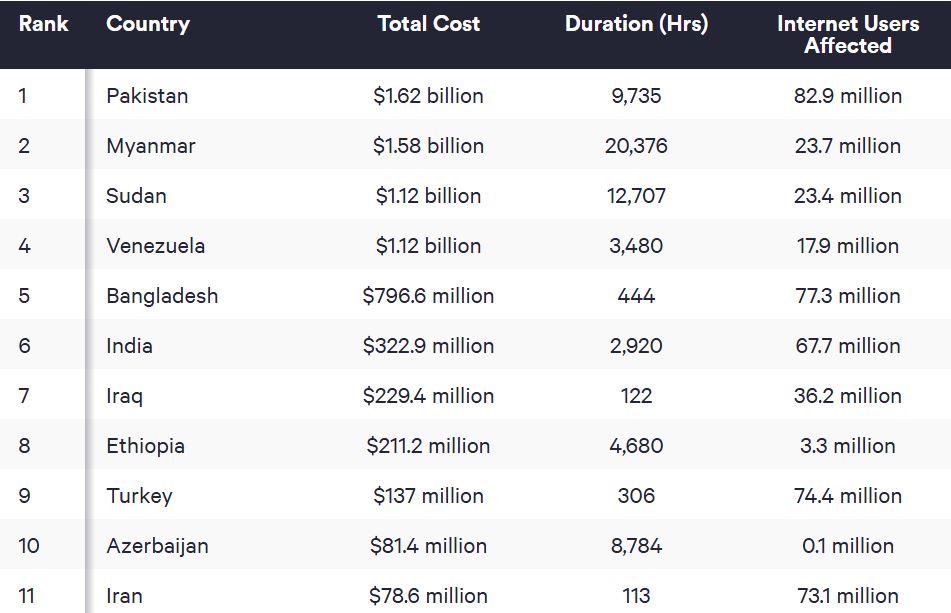Pakistani IT associations and industry experts have called on the government to fast-track the implementation of 5G services and tackle slow internet speeds, as the country faces significant economic losses from internet disruptions.
A recent report by global internet monitor Top10VPN.com revealed that Pakistan suffered the world’s highest economic losses from internet outages in 2024, totaling $1.62 billion. This figure surpassed losses in conflict-affected nations like Sudan and Myanmar.
Governments typically enforce internet censorship through complete blackouts or social media blocks. Another common strategy is internet throttling, which restricts speeds so severely that activities like live-streaming videos of protests or documenting human rights abuses become virtually impossible, leaving only basic text-based communication operational.
The report, published on January 2, highlighted that Pakistan endured 9,735 hours of internet disruptions, affecting 82.9 million users. The disruptions were largely attributed to political events, including elections and protests.

X (formerly Twitter) emerged as the most disrupted social media platform of the year, primarily due to extended blockades in Pakistan, Myanmar, and Venezuela. Additionally, the TikTok shutdown in Kyrgyzstan, which began in April 2024, accounted for most of the platform’s 8,115 hours of restrictions.
Asia experienced the highest impact from internet restrictions in 2024, with Pakistan, Myanmar, Bangladesh, and India ranking among the six most-affected countries globally. Both Asia and Sub-Saharan Africa recorded significantly more hours of internet shutdowns—around ten times higher—than other regions.

The Pakistan Software Houses Association (P@SHA) warned last month that the IT sector could face annual financial losses of up to $150 million due to slow internet speeds and VPN restrictions. P@SHA Chairman Sajjad Mustafa Syed noted, “Pakistan suffers a loss of more than one million dollars per hour on account of internet shutdowns.”
Syed urged the government to expedite the 5G rollout through the spectrum auction planned for March 2025. He also emphasized the need for fiber-optimisation of cell towers and the installation of new undersea cables to improve internet connectivity.
Despite positive growth, with IT-related exports reaching $3.2 billion in the 2023-24 fiscal year, Syed cautioned that frequent disruptions could jeopardize the government’s target of $15 billion in IT exports for the current fiscal year.
Tufail Ahmed Khan, President of the Pakistan Freelancers Association (PAFLA), underscored the impact of slow internet on the country’s 2.37 million freelancers. While IT exports continued to grow, Khan noted that the gains could have been significantly higher without these disruptions.
Khan commended the National Fiberization Policy introduced in November 2024, which aims to expand broadband coverage and improve internet speeds. He urged the government to adopt more internet and VPN-friendly policies to support freelancers in attracting foreign remittances and reducing reliance on government employment programs.
The calls from industry leaders come as Pakistan faces mounting pressure to modernize its digital infrastructure to sustain economic growth and ensure the competitiveness of its IT sector globally.




